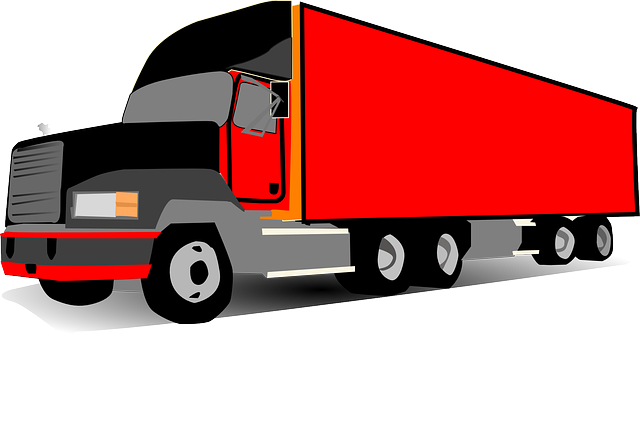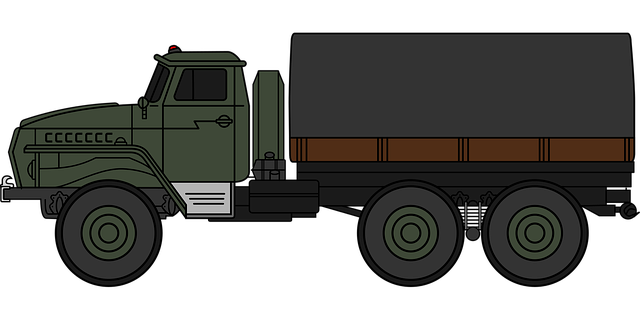Starting a new trucking operation faces unique risks, from accidents and weather to cargo loss. To mitigate these threats, new businesses should prioritize comprehensive trucking insurance with tailored startup fleet coverage. This includes robust liability coverage for accidents, physical damage insurance for breakdowns and collisions, plus specialized cargo insurance for their goods. By collaborating with insurers to design affordable trucking policies, new trucking businesses can secure the best coverage for their unique needs, enabling smooth growth without immediate financial setbacks.
Launching a new trucking operation comes with unique risks that demand specialized attention. From unpredictable road conditions to the high cost of vehicle repairs and potential cargo losses, understanding these challenges is crucial for success. This article guides you through navigating the complex landscape of comprehensive trucking insurance, focusing on essential coverage options like liability, physical damage, and tailored plans for startup fleets. Discover how to secure the best rates and suitable policies to protect your business, ensuring a smooth start on the road ahead.
Understanding the Unique Risks of a New Trucking Operation

Starting a new trucking operation comes with unique risks that established businesses often don’t face. From the moment you hit the road, your assets are exposed to various dangers. Physical damage from accidents, weather events, and mechanical failures is a constant threat, not to mention the risk of cargo loss or damage during transport. Furthermore, as a startup, establishing a solid reputation for safety can be challenging, increasing your exposure to liability claims.
To mitigate these risks effectively, new trucking businesses need comprehensive trucking insurance that goes beyond basic coverage. A tailored insurance plan should include robust physical damage insurance to protect your vehicles and startup fleet coverage for cargo insurance, ensuring the financial security of your goods during transit. Additionally, adequate liability coverage is essential to safeguard against potential claims related to accidents or property damage. By prioritizing these aspects, new trucking operations can ensure smooth sailing into their future, minimizing financial setbacks and focusing on growth.
Choosing the Right Comprehensive Trucking Insurance Package

When setting up a new trucking operation, one of the most critical decisions is selecting the ideal comprehensive trucking insurance package. New trucking businesses face unique challenges, and their insurance should reflect this. The best coverage for startups should offer a balance between thorough protection and affordability to ensure the sustainability of the growing fleet.
Comprehensive trucking insurance packages cater to these needs by providing tailored insurance plans that cover various aspects, including liability coverage for new fleets, physical damage insurance, and even specialized cargo insurance. Startup fleet coverage often includes additional benefits like roadside assistance, mechanical repair, and rental coverage during repairs, ensuring uninterrupted operations. By choosing a package that aligns with their specific requirements, trucking businesses can mitigate risks effectively without overspending on unnecessary coverage.
Tailoring Insurance Plans to Match Your Startup Fleet's Needs

When setting up a new trucking operation, one of the most critical considerations is securing the right insurance to protect your investment and business. The unique challenges faced by startups require specialised attention, as their needs may differ significantly from established operations. This is where tailored insurance plans come into play.
Instead of a one-size-fits-all approach, new trucking businesses should work closely with insurance providers to design comprehensive policies that address their specific requirements. This includes assessing the types and quantities of cargo transported, vehicle values, driver experience levels, and geographic areas of operation. By understanding these factors, insurers can offer affordable trucking policies that provide the best coverage for your startup fleet, including liability coverage for potential accidents or damage to goods, as well as physical damage insurance to protect against vehicle breakdowns or collisions.
Navigating Affordable Policies and Cargo Insurance for Startups

Navigating the complex landscape of insurance for a new trucking operation can be daunting, especially when seeking both affordable policies and robust coverage for your startup fleet. Many newcomers to the industry face challenges in finding the right balance between comprehensive trucking insurance that protects their investments and budget-friendly options that align with their financial goals.
The best approach is to work closely with insurance providers who specialize in catering to the unique needs of new trucking businesses. These experts can tailor insurance plans, ensuring your startup receives the most suitable coverage for its fleet, drivers, and cargo. This includes assessing liability risks, understanding physical damage potential, and determining the right level of cargo insurance to safeguard against financial losses. By leveraging their knowledge, you can secure comprehensive trucking insurance while managing costs effectively, enabling your new operation to hit the road with confidence and peace of mind.
Insuring a new trucking operation presents unique challenges, but with the right approach, new businesses can navigate these risks effectively. By understanding the specific dangers involved, choosing a comprehensive insurance package that aligns with your fleet’s needs, and tailoring policies to cover all aspects, startups can secure the best coverage for their investment. Remember, affordable trucking policies and cargo insurance are crucial components of risk management for any new operation. With the right tailored insurance plans, trucking businesses can hit the road with confidence, knowing they have robust liability coverage and physical damage insurance in place.
